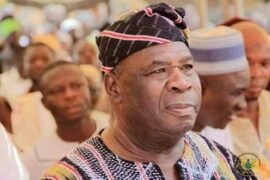What Is a Biography?
A biography is a thorough account of an individual’s life, meticulously chronicling their experiences, achievements, and influences. The biography purpose extends beyond mere storytelling; it aims to provide insight into the subject’s character, motivations, and the societal context in which they lived. By examining various biography examples, one can see how these narratives capture both personal and historical significance. For instance, the biography of a renowned scientist often highlights pivotal moments in their research while situating their contributions within the broader scientific community. Similarly, biographies of artists may explore their creative processes and the cultural movements they influenced. Through detailed accounts, biographies serve as a valuable means of understanding human experiences, offering both inspiration and education. Ultimately, a well-crafted biography not only documents a life but also invites readers to reflect on the complexities of existence and the legacies individuals leave behind.The Importance of Biographies in Literature
Biographies hold a significant place in literature, serving not only as narratives of individual lives but also as reflections of broader cultural and historical contexts. Through biography analysis, readers gain insights into the complexities of human experience, tracing the evolution of societal norms and values as seen through the lives of notable figures. This genre transcends mere storytelling; it provides a lens through which the literary impact of individual choices and circumstances can be examined against the backdrop of their times.
Biography Examples – Well-Written Samples for Inspiration
Kickstart your journey in crafting the perfect biography with inspiring examples that capture attention and resonate deeply with readers. Discover the styles that elevate your narrative.
Biographies in Education: Learning From the Past
While examining the role of biographies in education, one can observe how these narratives serve as powerful tools for understanding historical contexts and personal development. Biographical analysis enables students to engage with the lives of influential figures, fostering a deeper comprehension of the societal and cultural dynamics that shaped their experiences. Through the study of diverse biographies, learners gain insights into the complexities of human motivations and actions within specific historical contexts. Such narratives not only highlight individual achievements but also illuminate the broader historical events that influenced those lives. For instance, exploring the biography of a civil rights leader reveals the struggles and triumphs of a movement, enriching students’ understanding of social justice. Additionally, biographies can inspire critical thinking, as students assess the impact of historical circumstances on personal choices. In this way, biographies become instrumental in education, bridging past and present, and cultivating a more informed and empathetic worldview.The Role of Biography in Personal Development
Understanding one’s identity and aspirations often unfolds through the exploration of biographies, as individuals reflect on the lives of others to glean insights into their own journeys. Biographies serve as powerful tools in the self-discovery journey, offering diverse narratives that resonate with personal experiences and challenges. Through the stories of notable figures, readers engage in personal reflection, considering how those individuals navigated obstacles, pursued passions, and ultimately shaped their legacies. This reflective process encourages individuals to evaluate their own goals and values, fostering a deeper understanding of what drives them. By analyzing the decisions and transformations of others, individuals can identify parallels in their lives, prompting critical thinking about their own paths. Consequently, biographies not only illuminate the intricacies of human experience but also inspire individuals to initiate their own journeys of growth, encouraging a meaningful exploration of self and purpose.Professional Branding Through Biographies
In crafting a professional brand, the narratives embedded within biographies become instrumental, as they offer a framework through which individuals can articulate their unique identities and aspirations. These narratives serve as a conduit for professional storytelling, enabling individuals to convey their skills, experiences, and values effectively. By weaving together personal anecdotes and career achievements, a well-constructed biography fosters brand authenticity, allowing potential clients, employers, or collaborators to connect on a deeper level. Moreover, a biography reflects an individual’s journey, emphasizing growth and resilience, which can greatly enhance their professional appeal. As the digital landscape increasingly prioritizes personal branding, the role of biographies becomes paramount in establishing credibility and trust. Essentially, a thoughtfully crafted biography does not merely recount facts; it encapsulates the core of a professional’s identity, shaping perceptions and forging meaningful connections in a competitive environment.Different Types of Biographies
In exploring the various types of biographies, one encounters the distinction between autobiographies and biographies, each offering unique perspectives on life stories. Additionally, literary biographies provide insights into the lives of authors, revealing the interplay between their experiences and their works. Historical biographies serve an essential function, illuminating the lives of influential figures and their impact on society, thereby enriching the understanding of historical contexts.Autobiography vs. Biography
Biographies and autobiographies serve as windows into the lives of individuals, yet they embody distinct narrative forms that reflect differing perspectives and intentions. A biography is penned by an external author, offering an objective account, often supported by research and interviews, which allows for a broader context of the subject’s life. Examples of biographies include works like “Steve Jobs” by Walter Isaacson, which explore the intricacies of the subject’s impact on technology. In contrast, autobiography styles vary, but they typically present a first-person narrative, emphasizing personal experiences and insights. An example of this is “The Diary of a Young Girl” by Anne Frank, which provides a deeply personal perspective on historical events.
Afua Asantewaa Biography – Life, Guinness Record Attempt & Journey
Afua Asantewaa biography reflects a journey shaped by resilience and ambition. Born into a culturally rich Ghanaian family, she developed a profound sense of purpose early on. Her pursuit of a Guinness World Record was marked by meticulous training and an unwavering commitment, despite facing numerous challenges.
Literary Biographies Explained
Understanding the different types of biographies reveals the diverse approaches authors take to portray their subjects. Literary biographies, for instance, focus on the lives of writers and their works, examining the intricate interplay between their personal experiences and literary influences. These narratives often employ various narrative styles, from chronological accounts to thematic explorations, providing readers with a rich context for understanding the authors’ creative processes. For example, a literary biography may explore the impact of historical events on a writer’s themes, or how personal relationships shaped their oeuvre. By analyzing these elements, literary biographies not only illuminate the lives behind the texts but also enhance appreciation for the complexities of the written word.Historical Biographies Importance
While examining the impact of historical events on individual lives, it becomes clear that historical biographies serve an essential role in shaping collective memory and understanding. These narratives explore the lives of influential figures, providing insights into their motivations and experiences within a specific historical context. By illuminating the struggles and triumphs of these individuals, historical biographies enhance the cultural significance of their contributions, allowing readers to grasp the broader societal implications. Through detailed accounts, they connect personal stories to larger movements, fostering a deeper appreciation for history’s complexity. Ultimately, historical biographies not only preserve the legacy of notable figures but also encourage reflection on the human experience amid transformative events, enriching contemporary discourse on identity and heritage.Famous Biographies That Shaped History
Famous biographies often serve as windows into the lives of influential historical figures whose actions and philosophies have profoundly impacted society. Through the examination of their impactful life stories, one can uncover the motivations and circumstances that shaped their decisions, leading to pivotal changes in history. These narratives not only illuminate the complexities of their personalities but also highlight the broader social and political contexts in which they operated.Influential Historical Figures
Biographies of influential historical figures serve as windows into the past, illuminating the lives and decisions that have shaped the trajectory of societies. These narratives often center around influential leaders whose actions and ideologies catalyzed significant change. For instance, the biographies of figures such as Mahatma Gandhi and Martin Luther King Jr. reflect their struggles against oppression, showcasing their commitment to nonviolent resistance. Such historical narratives reveal not only personal convictions but also the broader socio-political contexts that framed their decisions. By examining the motivations and impacts of these leaders, biographers provide insight into the complexities of history, illustrating how individual choices can resonate through time and inspire future generations to advocate for justice and equality.Impactful Life Stories
Though many life stories remain untold, the biographies of certain individuals have profoundly influenced the course of history, offering rich insights into the human experience. Impactful narratives such as those of Nelson Mandela, Marie Curie, and Mahatma Gandhi showcase transformative experiences that resonate across generations. Mandela’s journey from prisoner to president illustrates resilience and forgiveness, inspiring movements against oppression worldwide. Curie’s groundbreaking work in radioactivity not only advanced science but also challenged gender norms in academia. Similarly, Gandhi’s philosophy of nonviolent resistance became a blueprint for civil rights movements globally. These biographies exemplify how personal struggles and triumphs can ignite change, revealing the interconnectedness of individual actions and broader societal transformations.How to Write an Engaging Biography
Writing an engaging biography requires a careful balance of narrative flair and factual accuracy, as the aim is to draw readers into the life of the subject while providing insights that resonate. To achieve this, the writer must employ creative writing techniques that enhance personal storytelling. A compelling biography begins with a hook — a vivid anecdote or a defining moment that captures the subject’s essence. The narrative should seamlessly weave facts with emotional depth, allowing readers to connect with the individual’s experiences and motivations. Including relevant themes, such as resilience or innovation, adds layers to the story. Additionally, incorporating quotes or reflections from the subject can provide authenticity and voice. Finally, a well-structured biography maintains a clear timeline, guiding readers through significant events without overwhelming them with details. Balancing these elements fosters a dynamic narrative that both informs and captivates, making the subject’s life relatable and inspiring.Biographies in the Digital Age
In the digital age, the landscape of biographies has transformed considerably, influenced heavily by the rise of social media platforms and online biography services. These tools enable individuals to craft and share their life stories in real-time, reaching wider audiences than traditional formats ever could. As a result, the portrayal of personal identity becomes increasingly dynamic, reflecting not only personal achievements but also the intricate interplay of public perception in a digital domain.Social Media Impact
As social media platforms continue to permeate daily life, the significance of personal biographies has evolved dramatically, reflecting a shift in how individuals curate their identities. Through social media storytelling, users construct narratives that encapsulate their experiences, beliefs, and aspirations, transforming traditional biographies into dynamic, interactive accounts. This digital identity is not merely a reflection of one’s life but a curated persona, often shaped by audience engagement and feedback. Users selectively share milestones, interests, and personal anecdotes, creating an ongoing dialogue about self-representation. Consequently, the modern biography serves as both a personal archive and a public performance, illustrating the complexities of self-identity in an interconnected world where every post contributes to an evolving narrative of who individuals present themselves to be.Online Biography Platforms
The rise of social media has paved the way for the emergence of various online biography platforms that cater to the evolving needs of digital self-representation. These platforms, such as LinkedIn and personal website builders, enable users to craft narratives that highlight their professional and personal journeys. By integrating elements of digital storytelling, individuals can showcase their achievements, interests, and experiences in a visually engaging manner. This shift from traditional biographical formats to interactive profiles reflects a broader cultural trend prioritizing authenticity and relatability. As users navigate these online biography platforms, they not only narrate their lives but also connect with broader communities, illustrating the profound impact of digital technology on personal identity and narrative construction in the contemporary age.The Impact of Biographies on Society
Biographies illuminate the lives of individuals, offering insights that transcend mere facts and dates. They serve as powerful vehicles for understanding the complexities of human experience, showcasing the biography influence on society by portraying diverse perspectives and backgrounds. This narrative form not only documents historical events but also reflects the values, struggles, and triumphs of individuals, making them relatable to broader societal contexts. Through the lens of personal stories, readers encounter themes of resilience, innovation, and morality, prompting introspection and dialogue about shared human experiences. Biographies foster empathy, allowing individuals to connect with those from different walks of life, thereby contributing to a more inclusive societal reflection. As they inspire future generations, biographies function as both mirrors and windows, illuminating paths of possibility while encouraging critical examination of societal norms. Ultimately, their impact resonates, shaping collective memory and informing contemporary discourse.Frequently Asked Questions
What Are the Key Elements of a Biography?
Key elements of a biography structure include the subject’s early life, significant achievements, personal challenges, relationships, and lasting impact. Each component weaves together a narrative that illuminates the individual’s journey and contributions to society.How Do Biographies Differ From Autobiographies?
Biographies differ from autobiographies primarily in perspective; biographies are written by others, highlighting factual details and insights, whereas autobiographies possess personal characteristics, offering subjective experiences and reflections from the author’s own life, presenting a more intimate narrative.Can a Biography Be Fictionalized?
Biographies can indeed be fictionalized through biographical fiction, allowing authors to take creative liberties. This genre blends factual elements with imaginative storytelling, offering readers a nuanced exploration of a subject’s life while enhancing emotional resonance.What Is the Typical Length of a Biography?
The typical length of a biography varies considerably, often ranging from 200 to 500 pages. Various formats exist, including short biographies, extensive narratives, and illustrated editions, each catering to different audiences and purposes.Are There Ethical Considerations in Writing Biographies?
In writing biographies, ethical considerations arise, particularly regarding consent issues and privacy concerns. Authors must navigate the delicate balance between revealing personal truths and respecting individuals’ rights, ensuring their narratives do not infringe upon the subjects’ dignity.Discover more from Ghana Scoop
Subscribe to get the latest posts sent to your email.





